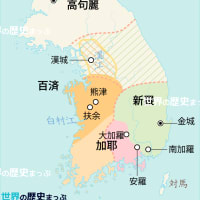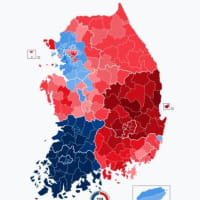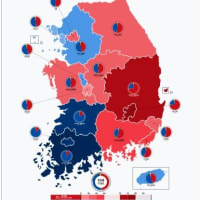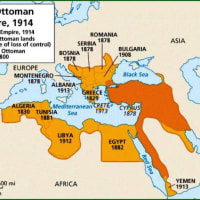●ラトビアが露と国境画定調印 残るは日本とエストニア 産経新聞 2007/03/28
ロシアのフラトコフ首相とラトビアのカルビティス首相は27日、モスクワで両国間の国境画定条約に調印した。これにより、ソ連崩壊以来、16年間にわたり不透明だった欧州とロシアの国境が定められ、欧州側も歓迎の意を表明した。
ラトビア側は、かつて同国の一部だったプスコフ州プイタロボ地区の返還をロシア側に求めていたが、カルビティス首相は「欧州の一員としてロシアと安定した現実的な関係をつくることが重要だった」と述べ、領土返還要求を放棄した理由を語った。
ロシアは、ラトビアが反露的姿勢を示しているとして経済的圧力を加えていた。ロシアが国境問題を抱えるのはこれで、同じバルト諸国のエストニアと日本だけとなり、北方領土問題の行方に今後さらに関心が集まる。(モスクワ 内藤泰朗)
http://www.sankei.co.jp/kokusai/world/070328/wld070328010.htm
●欧州議会の北方領土返還決議…露「ばかげている」 平成十七年七月十九日 読売新聞
ロシア通信によると、ウラジーミル・チジョフ露外務次官は18日、欧州連合(EU)の欧州議会が今月7日、北方領土の返還をロシアに促す決議を採択したことについて、「ばかげている。欧州議会は別の惑星に住んでいるようだ」と強く反発した。欧州議会の決議は、極東の安全保障強化を東アジア諸国に呼びかけたもので、北方領土については「第2次大戦末期にソ連によって占領された」とし、日本への返還を求めている。北方領土問題をめぐり、主要国で日本の主張を支持しているのは米国だったが、欧州議会が日本支持の決議を採択したのは初めてだった。
http://tamezou.iza.ne.jp/blog/entry/102070/
●「ロシアは北方領土を返還するように忠告されている」2005/9/30 プラウダロシア語版
России «посоветовали» отдать спорные острова Японии
<要旨>
「この紛争での日本の弱点はロシアへのエネルギー面での依存と軍事力の弱さにある。日本は50年に渡って真の軍隊を持つ権利を奪われている。」
「それ以外にも、日本は人口過剰に悩まされている。日本政府は国民のために人工島を建設することを強いられている。一億三千万人の人口を持つ日本は人口密度が一平方キロあたり350人に達する。日本が人口密度9人のロシアを羨んでいることは言うまでもない。しかしながら、日本の生活水準はロシアより遙かに高い。日本は科学技術や経済力で世界を代表する国の一つになった。南クリル諸島の住民は日本に一切のビザなしに渡航できる。ロシア極東の住民は皆日本車に乗り、ロシア車には見向きもしない。」
「日本は石油代替エネルギーの開発でも世界を代表する国の一つだ。日本の科学者がもうすぐ石油の購入や使用について国民を安心させるという可能性は否定できない。軍隊について言えば、日本の政治家(law-maker)は自衛隊を最新鋭の武器で武装した精強な軍隊に変身させる計画に同意している。また、日本が全世界で最も多くの金(gold reserve)を保有すると自慢できる点も留意すべきだ。」
「日本政府が南クリル諸島の扱いについて立場を変更する可能性は低い。それに加え、EUと米国の担当者は米国国防相のドナルド=ラムズフェルドの面前でロシアは論争中の四島全てを日本に返還すべきと忠告した(この一文はロシア語版では、「EUと米国は米国国防相のドナルド=ラムズフェルドと欧州議会を通して、ロシアは論争中の四島全てを日本に返還すべきと忠告した」となっている)。プーチンの訪日は今年始めに予定されていたが中止された。11月に予定されているプーチン訪日は両者に何ら利益をもたらさないのではないかという話が出ている。最近の日本は、千島問題、北朝鮮核開発問題、捕鯨規制問題など、あらゆる方面で強硬過ぎるほど妥協しない。(最後の一文は英文版には省かれている)」
●Putin firmly defends Russia's sovereignty for Kurile Islands, Japan insists on their return
09/30/2005 12:09 プラウダ英語版(内容はロシア語版とほぼ同じ)
The return of the islands is the basis of the peace treaty with Russia, Japanese politicians say
The scandal between Russia and Japan regarding the sovereignty of Kurile Islands has resumed this week again. Answering a question from a resident of Sakhalin in Russia's Far East during a call-in conference held on September 27, President Vladimir Putin stated that the sovereignty of Russia's four Kurile Islands was not to be discussed. Japanese Prime Minister Junichiro Koizumi said two days later, though, that Japan would continue to insist on the return of the islands. According to Koizumi, it would be the mandatory condition upon which Japan would agree to sign the peace treaty.
Speaking about relations with Japan, the Russian president said that there were certain questions left that the two countries had unsolved, including the one about the sovereignty of Kurile Islands. "It is a very sensitive question both for Russia and for Japan. I am certain that we always can find variants that would be good for the both sides," Putin said. The president added that the islands are under the Russian sovereignty that is fixed by international agreements. "These are the results of WWII, and we are not going to discuss anything at this point," Putin concluded.
The Japanese administration responded with a rather predictable reaction. The Japanese PM said in the parliament that Japan was advancing steadily to sign the peace treaty with Russia after the return of the four South Kurile Islands. Chief Cabinet Secretary Hiroyuki Hosoda was more explicit in his statement: "The return of the islands is the basis of the peace treaty. There are certain doubts about Russia's sufficient awareness of all historical nuances. That is why Japan constantly needs to repeat its requirements on the matter," Hosoda said.
Both Russia and Japan have been setting out their readiness to sign the peace treaty for 50 years already, although things still remain right where they started. The previous president of Russia, Boris Yeltsin, conducted formal talks with the former Japanese PM, Ryutaro Hashimoto, Russian and Japanese diplomats attempted to conducted economic agreements and set up numerous bilateral committees to settle a variety of issues. To crown it all, there was a special board established in October of 2003, in which well-known political and public figures of both Russia and Japan were included. Neither of those efforts have brought any positive results so far: members of the council said that they would most likely have to leave the dispute to future generations.
The territorial dispute heats up around the four islands: Iturup, Kunashir, Shikotan and the Habomai ridge. Russia considers the four islands its own territory. According to the peace treaty signed after the end of WWII, all Kurile Islands were put under the USSR's sovereignty. Japan, however, differentiated the legal and geographical notions of Kurile Islands and emphasized that it always distinguished them from the remaining group of islands. Japan agreed once for the return of only two islands, Shikotan and Habomai, which used to be a part of Hokkaido prefecture. However, when Junichiro Koizumi took the office, the Japanese administration demanded the return of all the four islands and refused to sign the peace treaty with Russia.
Japan obviously has its weak points in the dispute, the energy dependence on Russia, first and foremost. Japan is not rich with mineral resources, but there is also a question of defensive weakness as well: Japan has been deprived of the right to have a real army for more than 50 years already.
Apart from all of that, Japan suffers from the overpopulation crisis. Japanese authorities are forced to make artificial islands trying to obtain more territory for people. The 130-million-strong Japan has the population density of 350 people per one square kilometer. It goes without saying that Japan is very envious of Russia, where this index reaches only nine people per one square kilometer. However, the living standard in Japan is a lot higher than in Russia; Japan has become one of the world's leading technological and economic powers too. Those residing in South Kurile Islands have a possibility to visit Japan without any visas. Furthermore, practically all Russians living in the Far East of Russia own Japanese vehicles - they do not wish to drive Russian cars at all.
Japan is one of the world leaders in the development of oil-alternative energy sources. It is not ruled out that Japanese scientists may soon relieve their nation of the need to purchase and use oil. As for the army, Japanese law-makers have already approved a plan to turn self-defense forces into powerful Armed Forces outfitted with up-to-date weaponry. It is worthy of note at this point that Japan can boast of having largest gold reserves in the world.
The Japanese government is not likely to change its standpoint regarding the future of South Kurile Islands. To crown it all, EU and US officials in the face of the Pentagon chief, Donald Rumsfeld, advised Russia should return all the four moot islands to Japan. Russian President Putin was supposed to visit Japan in the beginning of the current year, but the trip was not meant to take place. It brings up the idea that Putin's scheduled visit to Tokyo in November is not likely to bring any positive results either.
Ivan Shmelev
【私のコメント】
ラトビアがロシアとの激しい対立の原因となってきた領土要求を遂に取り下げ、ロシアとの国境線確定で合意した。エストニアもロシア国境は未確定だが両国政府は現状の境界線を国境とすることに基本的に合意しており、それに異議を唱えているのは境界線の両側に分断されて居住する少数民族だけである。これで、ロシアに対して領土の返還を公式に要求する国は世界で唯一日本だけとなってしまった。孤立した日本はロシアの圧力に屈するしかないのだろうか?私はそうは考えない。ラトビアの対露領土返還要求撤回は欧州諸国の意見を反映したものである。ところが、2005年7月7日に欧州議会は北方四島を日本に返還すべきであるとの決議を行っているのだ。
2005/9/30のプラウダロシア語版に「ロシアは北方領土を返還するように忠告されている」と題する記事がある。ロシア人に領土返還を忠告しているのはEUと米国である。英語版では「プーチンは断固としてロシアの千島への主権を擁護し、日本はその返還を主張し続ける」という異なる題名になっている。記事の内容は英語・ロシア語とも一部を除きほぼ同一で、従来のロシアの返還反対論とは異なり、日露両国の主張を公平に載せており、日本が放棄した「千島」の範囲の認識が両国間で異なる点に触れている(この点は2005/9/22のRIAノボースチ通信の記事と同様)。
日本が北方領土問題で妥協しそうにないこと、EUや米国も日本を支持していること、北方領土やロシア極東のロシア人が日本との交流で良い暮らしをしていることなどを列挙し、日本とロシアの領土問題での要求を公平に紙面に載せることで、ロシア極東以外の日本と縁の薄いロシア人に領土問題での対日譲歩の利益を説得する意図の記事であると思われる。この記事で興味深いのは、北方領土問題だけでなく現在の日本に関する記述が多く、日本に対する賞賛に満ちあふれていることだ。日本の金保有が世界最大など信じがたい情報も含まれている。日本の報道ではロシア側が強硬姿勢とするものが多いが、「微妙な問題だが、善意を持てば、(両国にとって、また、住民にとって適切な解決策を見つけることができると確信する」とプーチンが述べている点から見て、日露両国は既に領土返還で基本的に合意済みであり、何らかの交換条件と引き換えに日本に四島の主権の全て又は一部を引き渡すというような落とし所が既に準備されていると予測する。
ロシアのフラトコフ首相とラトビアのカルビティス首相は27日、モスクワで両国間の国境画定条約に調印した。これにより、ソ連崩壊以来、16年間にわたり不透明だった欧州とロシアの国境が定められ、欧州側も歓迎の意を表明した。
ラトビア側は、かつて同国の一部だったプスコフ州プイタロボ地区の返還をロシア側に求めていたが、カルビティス首相は「欧州の一員としてロシアと安定した現実的な関係をつくることが重要だった」と述べ、領土返還要求を放棄した理由を語った。
ロシアは、ラトビアが反露的姿勢を示しているとして経済的圧力を加えていた。ロシアが国境問題を抱えるのはこれで、同じバルト諸国のエストニアと日本だけとなり、北方領土問題の行方に今後さらに関心が集まる。(モスクワ 内藤泰朗)
http://www.sankei.co.jp/kokusai/world/070328/wld070328010.htm
●欧州議会の北方領土返還決議…露「ばかげている」 平成十七年七月十九日 読売新聞
ロシア通信によると、ウラジーミル・チジョフ露外務次官は18日、欧州連合(EU)の欧州議会が今月7日、北方領土の返還をロシアに促す決議を採択したことについて、「ばかげている。欧州議会は別の惑星に住んでいるようだ」と強く反発した。欧州議会の決議は、極東の安全保障強化を東アジア諸国に呼びかけたもので、北方領土については「第2次大戦末期にソ連によって占領された」とし、日本への返還を求めている。北方領土問題をめぐり、主要国で日本の主張を支持しているのは米国だったが、欧州議会が日本支持の決議を採択したのは初めてだった。
http://tamezou.iza.ne.jp/blog/entry/102070/
●「ロシアは北方領土を返還するように忠告されている」2005/9/30 プラウダロシア語版
России «посоветовали» отдать спорные острова Японии
<要旨>
「この紛争での日本の弱点はロシアへのエネルギー面での依存と軍事力の弱さにある。日本は50年に渡って真の軍隊を持つ権利を奪われている。」
「それ以外にも、日本は人口過剰に悩まされている。日本政府は国民のために人工島を建設することを強いられている。一億三千万人の人口を持つ日本は人口密度が一平方キロあたり350人に達する。日本が人口密度9人のロシアを羨んでいることは言うまでもない。しかしながら、日本の生活水準はロシアより遙かに高い。日本は科学技術や経済力で世界を代表する国の一つになった。南クリル諸島の住民は日本に一切のビザなしに渡航できる。ロシア極東の住民は皆日本車に乗り、ロシア車には見向きもしない。」
「日本は石油代替エネルギーの開発でも世界を代表する国の一つだ。日本の科学者がもうすぐ石油の購入や使用について国民を安心させるという可能性は否定できない。軍隊について言えば、日本の政治家(law-maker)は自衛隊を最新鋭の武器で武装した精強な軍隊に変身させる計画に同意している。また、日本が全世界で最も多くの金(gold reserve)を保有すると自慢できる点も留意すべきだ。」
「日本政府が南クリル諸島の扱いについて立場を変更する可能性は低い。それに加え、EUと米国の担当者は米国国防相のドナルド=ラムズフェルドの面前でロシアは論争中の四島全てを日本に返還すべきと忠告した(この一文はロシア語版では、「EUと米国は米国国防相のドナルド=ラムズフェルドと欧州議会を通して、ロシアは論争中の四島全てを日本に返還すべきと忠告した」となっている)。プーチンの訪日は今年始めに予定されていたが中止された。11月に予定されているプーチン訪日は両者に何ら利益をもたらさないのではないかという話が出ている。最近の日本は、千島問題、北朝鮮核開発問題、捕鯨規制問題など、あらゆる方面で強硬過ぎるほど妥協しない。(最後の一文は英文版には省かれている)」
●Putin firmly defends Russia's sovereignty for Kurile Islands, Japan insists on their return
09/30/2005 12:09 プラウダ英語版(内容はロシア語版とほぼ同じ)
The return of the islands is the basis of the peace treaty with Russia, Japanese politicians say
The scandal between Russia and Japan regarding the sovereignty of Kurile Islands has resumed this week again. Answering a question from a resident of Sakhalin in Russia's Far East during a call-in conference held on September 27, President Vladimir Putin stated that the sovereignty of Russia's four Kurile Islands was not to be discussed. Japanese Prime Minister Junichiro Koizumi said two days later, though, that Japan would continue to insist on the return of the islands. According to Koizumi, it would be the mandatory condition upon which Japan would agree to sign the peace treaty.
Speaking about relations with Japan, the Russian president said that there were certain questions left that the two countries had unsolved, including the one about the sovereignty of Kurile Islands. "It is a very sensitive question both for Russia and for Japan. I am certain that we always can find variants that would be good for the both sides," Putin said. The president added that the islands are under the Russian sovereignty that is fixed by international agreements. "These are the results of WWII, and we are not going to discuss anything at this point," Putin concluded.
The Japanese administration responded with a rather predictable reaction. The Japanese PM said in the parliament that Japan was advancing steadily to sign the peace treaty with Russia after the return of the four South Kurile Islands. Chief Cabinet Secretary Hiroyuki Hosoda was more explicit in his statement: "The return of the islands is the basis of the peace treaty. There are certain doubts about Russia's sufficient awareness of all historical nuances. That is why Japan constantly needs to repeat its requirements on the matter," Hosoda said.
Both Russia and Japan have been setting out their readiness to sign the peace treaty for 50 years already, although things still remain right where they started. The previous president of Russia, Boris Yeltsin, conducted formal talks with the former Japanese PM, Ryutaro Hashimoto, Russian and Japanese diplomats attempted to conducted economic agreements and set up numerous bilateral committees to settle a variety of issues. To crown it all, there was a special board established in October of 2003, in which well-known political and public figures of both Russia and Japan were included. Neither of those efforts have brought any positive results so far: members of the council said that they would most likely have to leave the dispute to future generations.
The territorial dispute heats up around the four islands: Iturup, Kunashir, Shikotan and the Habomai ridge. Russia considers the four islands its own territory. According to the peace treaty signed after the end of WWII, all Kurile Islands were put under the USSR's sovereignty. Japan, however, differentiated the legal and geographical notions of Kurile Islands and emphasized that it always distinguished them from the remaining group of islands. Japan agreed once for the return of only two islands, Shikotan and Habomai, which used to be a part of Hokkaido prefecture. However, when Junichiro Koizumi took the office, the Japanese administration demanded the return of all the four islands and refused to sign the peace treaty with Russia.
Japan obviously has its weak points in the dispute, the energy dependence on Russia, first and foremost. Japan is not rich with mineral resources, but there is also a question of defensive weakness as well: Japan has been deprived of the right to have a real army for more than 50 years already.
Apart from all of that, Japan suffers from the overpopulation crisis. Japanese authorities are forced to make artificial islands trying to obtain more territory for people. The 130-million-strong Japan has the population density of 350 people per one square kilometer. It goes without saying that Japan is very envious of Russia, where this index reaches only nine people per one square kilometer. However, the living standard in Japan is a lot higher than in Russia; Japan has become one of the world's leading technological and economic powers too. Those residing in South Kurile Islands have a possibility to visit Japan without any visas. Furthermore, practically all Russians living in the Far East of Russia own Japanese vehicles - they do not wish to drive Russian cars at all.
Japan is one of the world leaders in the development of oil-alternative energy sources. It is not ruled out that Japanese scientists may soon relieve their nation of the need to purchase and use oil. As for the army, Japanese law-makers have already approved a plan to turn self-defense forces into powerful Armed Forces outfitted with up-to-date weaponry. It is worthy of note at this point that Japan can boast of having largest gold reserves in the world.
The Japanese government is not likely to change its standpoint regarding the future of South Kurile Islands. To crown it all, EU and US officials in the face of the Pentagon chief, Donald Rumsfeld, advised Russia should return all the four moot islands to Japan. Russian President Putin was supposed to visit Japan in the beginning of the current year, but the trip was not meant to take place. It brings up the idea that Putin's scheduled visit to Tokyo in November is not likely to bring any positive results either.
Ivan Shmelev
【私のコメント】
ラトビアがロシアとの激しい対立の原因となってきた領土要求を遂に取り下げ、ロシアとの国境線確定で合意した。エストニアもロシア国境は未確定だが両国政府は現状の境界線を国境とすることに基本的に合意しており、それに異議を唱えているのは境界線の両側に分断されて居住する少数民族だけである。これで、ロシアに対して領土の返還を公式に要求する国は世界で唯一日本だけとなってしまった。孤立した日本はロシアの圧力に屈するしかないのだろうか?私はそうは考えない。ラトビアの対露領土返還要求撤回は欧州諸国の意見を反映したものである。ところが、2005年7月7日に欧州議会は北方四島を日本に返還すべきであるとの決議を行っているのだ。
2005/9/30のプラウダロシア語版に「ロシアは北方領土を返還するように忠告されている」と題する記事がある。ロシア人に領土返還を忠告しているのはEUと米国である。英語版では「プーチンは断固としてロシアの千島への主権を擁護し、日本はその返還を主張し続ける」という異なる題名になっている。記事の内容は英語・ロシア語とも一部を除きほぼ同一で、従来のロシアの返還反対論とは異なり、日露両国の主張を公平に載せており、日本が放棄した「千島」の範囲の認識が両国間で異なる点に触れている(この点は2005/9/22のRIAノボースチ通信の記事と同様)。
日本が北方領土問題で妥協しそうにないこと、EUや米国も日本を支持していること、北方領土やロシア極東のロシア人が日本との交流で良い暮らしをしていることなどを列挙し、日本とロシアの領土問題での要求を公平に紙面に載せることで、ロシア極東以外の日本と縁の薄いロシア人に領土問題での対日譲歩の利益を説得する意図の記事であると思われる。この記事で興味深いのは、北方領土問題だけでなく現在の日本に関する記述が多く、日本に対する賞賛に満ちあふれていることだ。日本の金保有が世界最大など信じがたい情報も含まれている。日本の報道ではロシア側が強硬姿勢とするものが多いが、「微妙な問題だが、善意を持てば、(両国にとって、また、住民にとって適切な解決策を見つけることができると確信する」とプーチンが述べている点から見て、日露両国は既に領土返還で基本的に合意済みであり、何らかの交換条件と引き換えに日本に四島の主権の全て又は一部を引き渡すというような落とし所が既に準備されていると予測する。




























ペルシャ湾でアメリカの空母が炎上する時、全ての歴史は動き始めるらしい。
中国を砂漠にしたのは中国人
http://my.shadow-city.jp/?eid=393993
今月の推薦コラム
国家林業局の発表によると、中国の30省、889の県な
http://www.teamrenzan.com/archives/writer/alacarte/post_170.html
ネオコン達は刑務所へ?
http://benjaminfulford.typepad.com/benjaminfulford/2007/03/post_19.html
さすが中国ですね。やる事が凄すぎです。
http://youtubeyourtube.blog95.fc2.com/
どこの報道か?
何故なら、民主党が政権をとるたびに、日本は崩壊させられるから。
でも、日本の親米保守の阿呆は、いつも米国頼み。もう、あほかと。
まず、日本国内の世論を強固にするために
これまでの売国マスコミを完全に潰す。
日本のマスコミは、米中韓の反日報道に引っ張られやすいからだ。
放送免許制度、新聞再販制度、新聞宅配制度、全部を潰す。
全てのマスコミは、インターネット上の各々が勝手に流すようにする。
こうなると、一部の売国マスゴミに世論操作されなくなる。
左翼マスコミに操られるアホな国民(無党派層、無関心層が多い)を、
売国左翼マスコミの情報から遠ざけるのだ。
また、日本の教育制度も改革しなきゃいかん。
理系はそのままにしておいて、文系は改革しなきゃいかん。
とくに左翼教育界を完全に打倒する。
北東アジアの地政学を激変させるために、
一刻も早く統一朝鮮を実現させる。
そうなれば、中韓が共同して反日になることはなくなる。
中国と統一朝鮮の間に、国境紛争が起こる可能性が出てくるからだ。
今はだいたい、アメリカが反日を煽るのに、中韓を支援する場合が多い。
この場合は、中韓の間の友好関係が絶対条件になる。
ここ10年は北朝鮮が緩衝地帯になって、中韓の友好関係が実現していた。
しかし、統一朝鮮が示現すれば、中国と統一朝鮮の間に摩擦が起きる。
よって、アメリカが中韓を操ろうにも、中韓自体が対立し
中国が日本に歩み寄ってくる可能性が高くなる。
2007年03月29日20時51分
小泉前首相とロシアのプーチン大統領のイニシアチブで04年に発足した日ロ賢人会議の解散を日本側が提案し、ロシア側座長のルシコフ・モスクワ市長が強く反発する論文を29日付のロシア紙に寄稿した。「倫理的観点からも首脳会談か両国政府の合意で決定されるべきだ」と非難している。
賢人会議は、中長期的な両国関係について識者が意見を交換し、領土問題解決に向けた環境を整備することを狙って日本側から提案。03年10月の日ロ首脳会談で設立が合意された。
日本側座長は、森元首相が務めている。これまでに日ロ両国で3回の会合を重ねた。ロシアでの会合では毎回プーチン大統領とメンバーの会談が設定されるなど、高いレベルでの意見交換の機会となっていた。